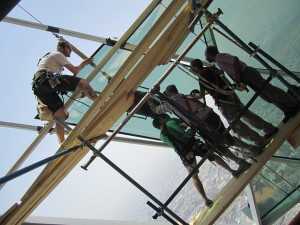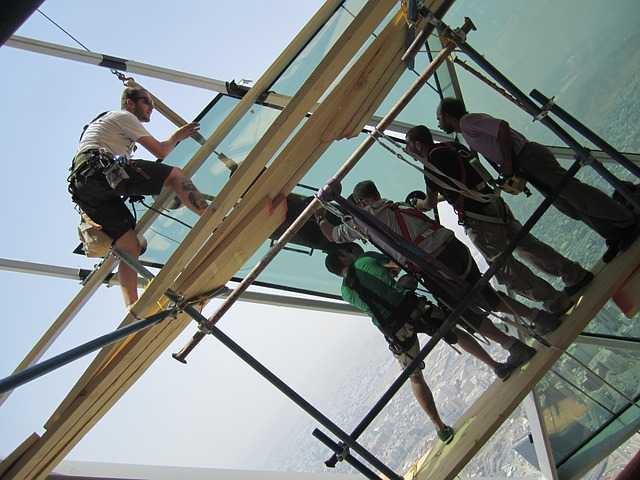 Glass goes beyond beauty and function. It is one of the primary materials for construction. Buildings use it for walls, while offices use it as dividers. Homes and hotels use glass for pool fencing and balustrades.
Glass goes beyond beauty and function. It is one of the primary materials for construction. Buildings use it for walls, while offices use it as dividers. Homes and hotels use glass for pool fencing and balustrades.
It’s amazing how a supposedly fragile construction material can be so useful and versatile, while being elegant and classy. Here are three glass panel types that became a popular material for construction and design:
Laminated glass
This type of compressed glass is made from a thin sheet of resin or plastic with an interlayer between the panels. The plastic or resin makes the glass shatterproof and almost unbreakable. The glass doesn’t bend and break upon impact; the resin holds the shards together.
With more layers, the glass panels become harder and more shatterproof. PerthCityGlass.com.au and glass pool fencing contractors in Perth use laminated glass as one of their materials for construction.
Tempered glass
This type of glass panel is four to six times sturdier than normal glass sheets. The panels shatter into smaller pieces instead of breaking large cuts, which make it safer for most architectural functions. The glass undergoes chemical or heat treatment for additional strength.
Tempered glass is perfect for sliding doors, skylight panels and other architectural parts exposed to outdoor elements. With its tensile strength, the glass is less likely to break under intense weather conditions.
Float glass
Unlike the standard tempered glass, this panel undergoes heat and chemical processing. Manufacturers pour molten glass on melted tin, letting it slowly cool to form the panel.
Float glass is popular for its flexibility. This heat-tempered glass is a common material for constructing panels in buildings. Its smooth and shiny surface is comparable to the sheen of ceramic chinaware.
Today’s manufacturers are using upgrades to create glass panels, making every product stronger and better for construction and design. To determine which type of glass panel is suitable for your project, talk to your local contractor.




